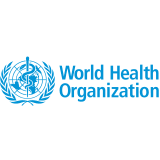
WHO (World Health Organisation) is the directing and coordinating authority for health within the United Nations system. It is responsible for providing leadership on global health matters, shaping the health research agenda, setting norms and standards, articulating evidence-based policy options, providing technical support to countries and monitoring and assessing health trends. WHO was founded in 1948.
193 countries and two associate members are WHO’s membership. They meet every year at the World Health Assembly in Geneva to set policy for the Organization, approve the Organization’s budget.
Over 8000 public health experts including doctors, epidemiologists, scientists, managers, administrators and other professionals from all over the world work for WHO in 147 country offices, six regional offices and at the headquarters in Geneva, Switzerland.
The WHO agenda
WHO operates in an increasingly complex and rapidly changing landscape. The boundaries of public health action have become blurred, extending into other sectors that influence health opportunities and outcomes. WHO responds to these challenges using a six-point agenda. The six points address two health objectives, two strategic needs, and two operational approaches. The overall performance of WHO will be measured by the impact of its work on women's health and health in Africa.
1. Promoting development
2. Fostering health security
3. Strengthening health systems
4. Harnessing research, information and evidence
5. Enhancing partnerships
6. Improving performance
The role of WHO in public health
WHO fulfils its objectives through its core functions:
Who they are
Founded in 1948, WHO is the United Nations agency that connects nations, partners and people to promote health, keep the world safe and serve the vulnerable – so everyone, everywhere can attain the highest level of health.
What they do
WHO leads global efforts to expand universal health coverage. We direct and coordinate the world’s response to health emergencies. And we promote healthier lives – from pregnancy care through old age. Our Triple Billion targets outline an ambitious plan for the world to achieve good health for all using science-based policies and programmes.


